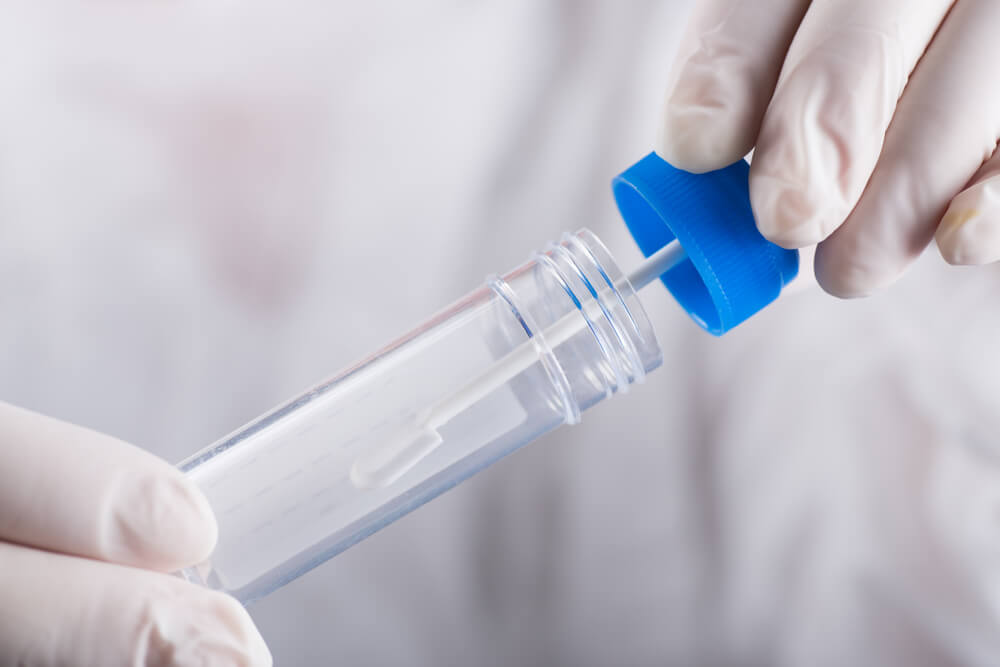City parks and public areas have a high incidence of gastrointestinal parasites, which can lead to serious consequences for you and your pet. Fecal tests are an important part of a comprehensive pet healthcare program, because they can detect these infections and protect your pet’s wellbeing. In addition, pet sitters and daycare providers often require a negative fecal before they will provide service for your pet. Neighborhood Vets Mobile Care wants to explain why fecal testing is such an important part of your pet’s health care.
What parasites does fecal testing detect in pets?
Fecal tests detect intestinal parasites, which are a common problem for cats and dogs, and sometimes for humans. Parasites that can be detected by a fecal test include:
- Roundworms — Roundworms are the most common parasite found in pets. These parasites are transmitted in several ways, including through the mother’s placenta, through the mother’s milk, by ingesting larvated eggs in the environment, and by ingesting small mammals infected by roundworm larvae. Puppies are especially prone to roundworm infections, and signs include diarrhea, vomiting, weight loss, poor hair coat, and a pot-bellied appearance. In addition, roundworms can move through the lungs, causing coughing. In humans, roundworms can cause an infection called toxocariasis, which can damage the liver, heart, lungs, muscles, eyes, and brain.
- Hookworms — Hookworms are transmitted when your pet ingests larvae in infected dirt, or when the larvae penetrate their skin. These parasites can cause serious blood loss, especially in puppies and kittens. Signs include weakness, diarrhea, and weight loss. Humans can also be infected, typically when the parasites penetrate the skin, causing cutaneous larva migrans. Hookworms are especially problematic because they are now developing resistance to common dewormers. These multi-anthelmintic drug-resistant (MADR) hookworms started in racing greyhound populations, but are now spreading through the general population.
- Whipworms — Whipworms are typically transmitted when your pet ingests substances contaminated by infected feces. They attach to and irritate your pet’s cecum and colon, and cause signs that include weight loss, diarrhea, bloody stools, and anemia. The human infection is called trichuriasis, and includes signs such as frequent, painful bowel movements that contain mucus, water, and blood, and rectal prolapse.
- Giardia — Giardia is usually transmitted when your pet swallows water or other substances contaminated with feces. Signs include weight loss, diarrhea, and a poor hair coat. In infected humans, signs include diarrhea, greasy stools, stomach pain, and vomiting.
- Coccidia — Coccidia is transmitted when your pet ingests soil that contains coccidia or other substances that contain feces. The most common sign is diarrhea. When humans are infected, signs include diarrhea, fever, abdominal pain, and headache.
How is a fecal test performed?
Worm eggs, larvae, and protozoan cysts are impossible to see with the naked eye, so fecal testing uses other methods to detect the parasites, including:
- Smears — A small fecal sample is smeared on a microscope slide and examined under the microscope.
- Flotation — This method involves mixing the fecal sample in a special solution that causes the parasite eggs and protozoan cysts to float to the surface. The parasites are then identified microscopically.
- Centrifugation — This method involves spinning a fecal sample in a dense salt solution in a centrifuge machine before performing the fecal flotation.
- Antigen testing — Performed at a reference lab, fecal antigen testing can detect parasite infections when eggs aren’t present.
Neighborhood Vets Mobile Care wants to ensure your pet’s parasite problems are diagnosed as soon as possible, so we send our fecal samples to IDEXX lab for antigen testing. This method can identify infections prior to egg shedding, and avoids false negative results caused by intermittent egg shedding.
What is the protocol for providing an adequate fecal sample from my pet?
The Companion Animal Parasite Council (CAPC) recommends fecal tests for puppies and kittens four times in their first year, and twice-annual testing for adult pets. Neighborhood Vets Mobile Care makes fecal testing your pet easy and inexpensive by providing kits to collect your pet’s stool sample. We will be happy to drop off a kit if you are interested, and after collection, you can send in the sample. The charge is only $30. Fresh samples are preferred for more accurate results.
What happens if my pet has parasites?
While finding parasites on your pet’s fecal test is not ideal, intestinal parasites are not life-threatening when caught early, and they can be treated with appropriate medications. If your pet is diagnosed with parasites, especially hookworms, they may need follow-up testing, to ensure the infection is cleared.
How can I prevent intestinal parasites in my pet?

Providing year-round intestinal parasite prevention medication is the best way to ensure your pet is protected from intestinal parasites. Other recommendations include:
- Cleanup — Pick up fecal matter in the yard, and clean litter boxes promptly and frequently.
- Hygiene — Always wear gloves when handling animal waste, and wash your hands immediately after contact.
- Disposal — Properly dispose of fecal matter.
Regular fecal testing is important to keep your pet happy and healthy, and we make collecting a sample easy and convenient. If you would like a fecal check for your pet, contact Neighborhood Vets Mobile Care, and we will drop off a kit at your home.

